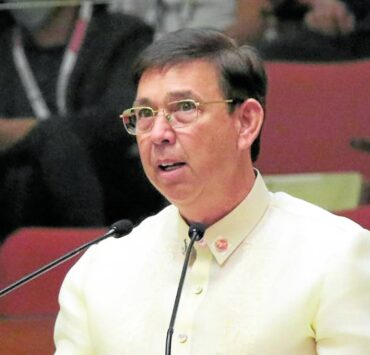To oppose or support VP Sara’s impeachment: A pivotal moment for politicians

Politicians eyeing positions in the upcoming local and national elections on May 12, 2025, face a daunting dilemma regarding Vice President Sara Duterte’s potential impeachment. This predicament has intensified following the Iglesia ni Cristo’s (INC) impressive “show of force” during the National Rally for Peace on Jan. 13, backing President Marcos’ stance against impeachment proceedings.
The INC underscored its significant influence, making politicians wary of antagonizing the group. With an estimated more than 1.5 million members in attendance during the rally, the INC’s block-voting power is substantial and politicians risk losing crucial support if they oppose the group’s stance.
This predicament highlights the intricacies of political decision-making, mirroring Jean-Paul Sartre’s existentialist philosophy. Sartre’s concept of “bad faith” becomes relevant, where politicians might prioritize short-term gains over principled actions, compromising their authenticity. This moral dilemma forces politicians to weigh their personal convictions against the pressure to conform to party lines and maintain political viability. The stakes are high, with their careers hanging in the balance.
Politicians must also consider the long-term consequences of their actions. Immanuel Kant’s categorical imperative theory suggests that decisions should be guided by universal moral laws rather than personal interests. However, the pressure to secure support from influential factions often clouds this moral compass. The INC’s involvement in political affairs blurs the lines between personal beliefs and public duties, echoing philosophical debates on the separation of church and state.
Lastly, this predicament presents an opportunity to identify principled politicians who prioritize consistency and integrity over political expediency. John Rawls’ theory of justice as fairness emphasizes the importance of impartial decision-making, untainted by personal biases or interests. Rawls’ concept of the “original position”—where individuals make decisions behind a “veil of ignorance”—is particularly relevant. Politicians should consider the long-term consequences of their actions, rather than mere political gain.
The decision to support or oppose Vice President Sara’s impeachment has become a pivotal moment for these politicians. This choice will expose their true character, revealing whether they prioritize principles or political expediency. They must now weigh their options carefully, considering the potential consequences of their actions on their careers and the nation’s future.
Ultimately, this impeachment process serves as a litmus test for politicians’ commitment to ethical decision-making. Will they stand by their principles, or yield to political pressure? The answer, in my view, will determine the integrity of the government and the trustworthiness of our leaders. As the nation watches, the world will also take note of how leaders navigate this critical juncture, defining the future of democracy in the country.
REGINALD B. TAMAYO,
Marikina City

















